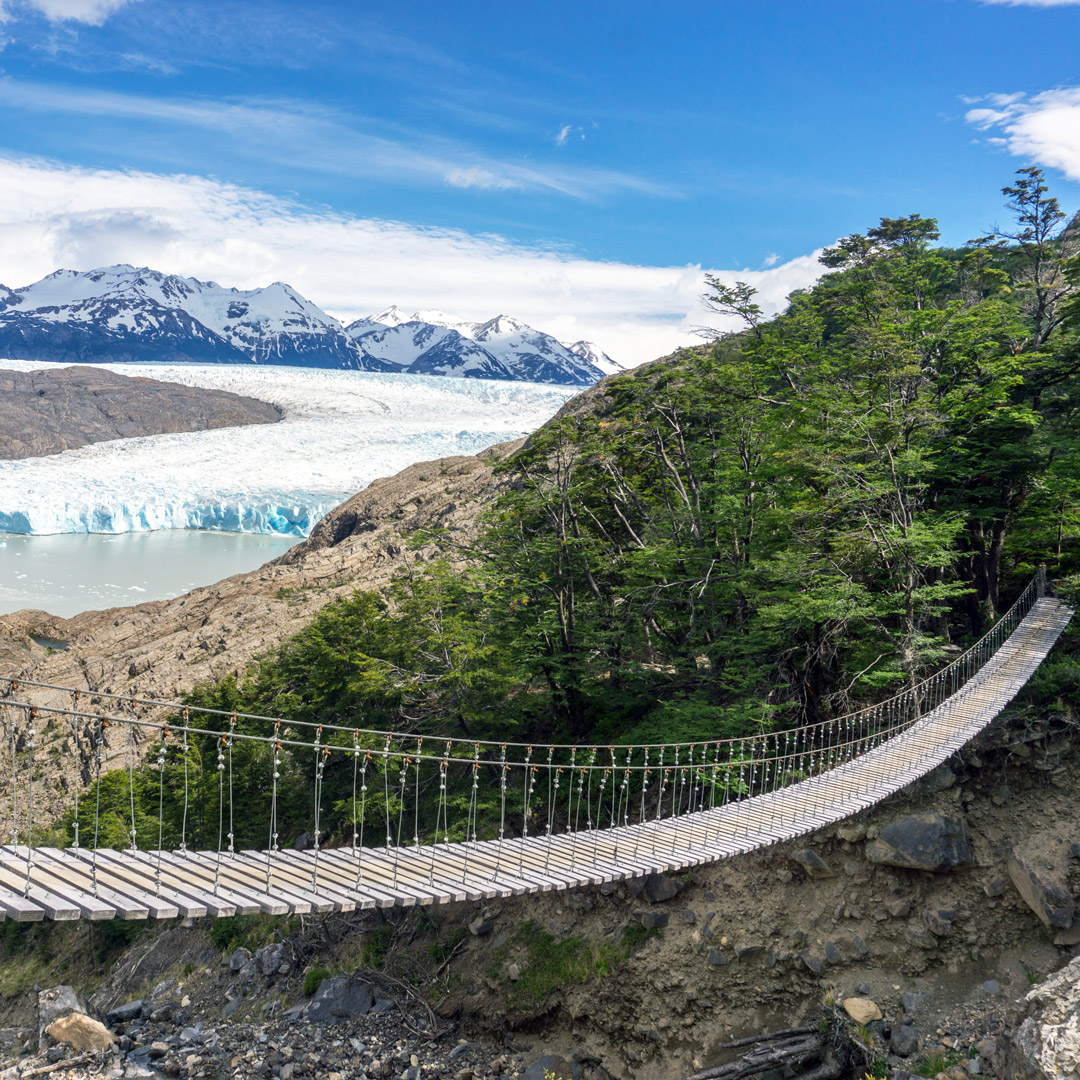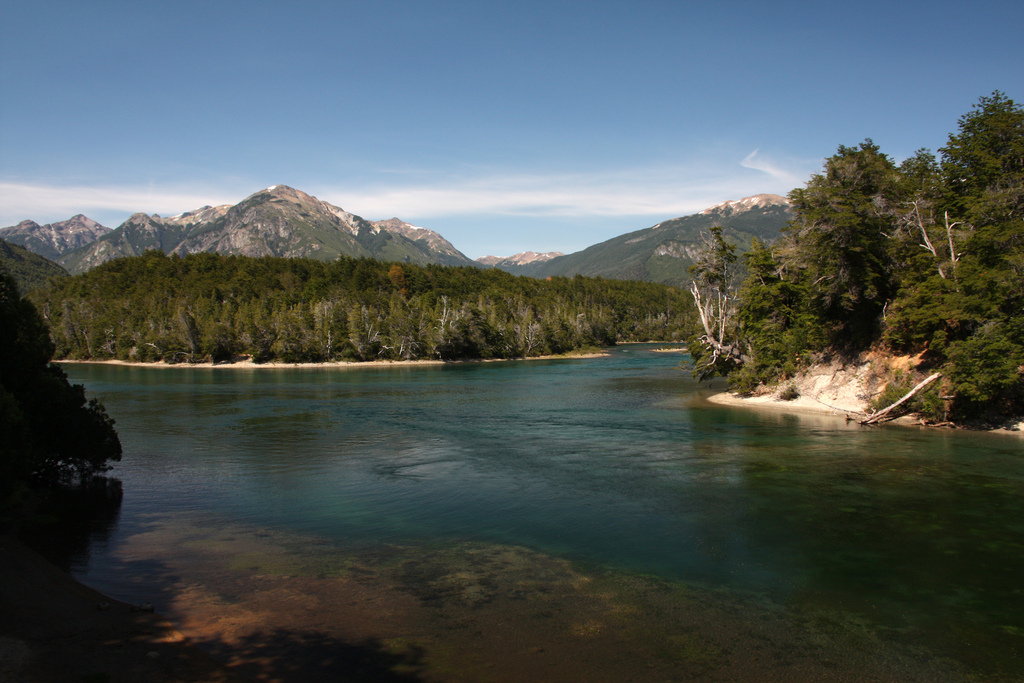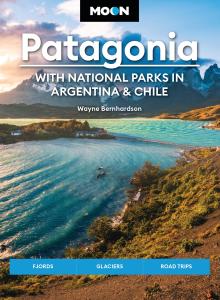Environmental Issues in Patagonia
Like other countries, Argentina and Chile suffer from environmental degradation, though not all indicators are negative. Here are a few of the concerns regarding environmental issues in Patagonia.

Air, Water, and Noise Pollution
Aging diesel buses may be the primary culprit in deteriorating urban air quality, but private vehicles and taxis contribute more than their share (many taxis and private vehicles, though, run on natural gas). Superannuated factories, with subsidized smokestacks, are another source but, especially in Chile, the widespread use of firewood for cooking and heating is a public health issue.
In Patagonia, a different sort of atmospheric problem is critical. Deterioration of the Antarctic ozone layer has exposed both humans and livestock to dangerous UV radiation in summer. Though ozone depletion from aerosols is a global problem over which Argentines and Chileans have relatively little control, they suffer the consequences of the growing ozone hole.
Just as motor vehicles cause urban air pollution, so do they produce most of its noise pollution, due partly to inadequate mufflers. Buses and motorcycles are the worst offenders, but Jet Skis and other personal watercraft on otherwise limpid, placid lakes are a source of growing concern.
Drinking water is normally potable, but a historical legacy of polluted waterways derives from, first, the proliferation of European livestock, followed by the processing of hides and livestock, and then by industry. Mining is also a factor. Near the city of Esquel, Chubut, there was vociferous opposition to a Canadian project that would have used cyanide, which might find its way into streams and aquifers, to extract gold from local ores.
Salmon farming, a booming and increasingly concentrated industry, causes problems with runoff, from Chile’s Andean lakes region south into Aisén. Moreover, salmon often escape to colonize streams and seas at the expense of native fish, and some farmers have been accused of killing sea lions that prey on the caged fish.
Newsletter Signup
By clicking ‘Sign Up,’ I acknowledge that I have read and agree to Hachette Book Group’s Privacy Policy and Terms of Use
Solid Waste
Like other urban and rural areas, Patagonian cities can produce prodigious amounts of garbage. Though the landfills are isolated, gusting winds can carry their contents for dozens of kilometers or more.
Despite the disposal problems, city streets are relatively clean even if, in the rush toward “development,” there’s an unfortunate reliance on disposable beverage containers and other undesirable packaging. The Patagonian towns of El Calafate (Argentina) and Pucón (Chile) have banned plastic bags.
Energy
Argentina has been nearly self-sufficient in fossil fuels and has substantial hydroelectric resources in the subtropical north and along the Andean foothills, but recently it’s had to import petroleum from Venezuela because low prices have discouraged local producers from exploration and extraction. Now it’s encouraging fracking (hydraulic fracturing) in Neuquén’s Vaca Muerta shales, north of the town of Zapala.

Argentine governments have promoted nuclear power since the 1950s. Not known for its transparency, the Comisión Nacional de Energía Atómica (CNEA, National Atomic Energy Commission) is located in San Carlos de Bariloche.
Even hydroelectricity is no panacea, as it threatens key natural sites in both Argentina and Chile. The most threatened areas are the basins of Chile’s Río Futaleufú, one of the world’s top white-water rivers, and the isolated Río Baker, but Argentina’s Río Santa Cruz is due to become the site of a major Chinese-built dam.
Deforestation and Soil Conservation
Native forest conservation is a hot-button issue for many Chilean activists, who have led determined and successful opposition to schemes like the Cascada Chile wood chip project in Region X (Los Lagos), which was canceled in early 2001. Clandestine logging of protected alerce trees in the Andean lakes district has caused occasional scandals.

According to the industry-oriented Corporación de Madera (Corma), 90 percent of the timber that arrives in Chilean factories comes from forest plantations and only 10 percent from native forests. This figure is misleading in that plantations of eucalyptus and Monterey pine have replaced heavily logged native woodlands. Moreover, of the 10 million cubic meters of wood used annually for heating and cooking in Chilean households, 70 percent comes from native forests. Hydroelectric projects proposed for Aisén, near the town of Cochrane, would require a 2,300-kilometer power line that would deforest a lengthy strip along the Carretera Austral.
Centuries of livestock activities, both grazing and trampling, have already caused serious erosion even in areas where there were never native forests, such as the Pampas and the Patagonian steppes. Even today, some forested national parks, most notably Argentina’s Lanín and Los Glaciares, have failed to eliminate grazing. There has been pressure to create presumably sustainable forest-exploitation projects in Tierra del Fuego’s Magellanic woodlands, and road-building in these areas has caused substantial damage.
Fishing
What happens beneath the seas may be less observable than deforestation or air pollution, but there is serious concern that both small and large fisheries are overfished on both sides of the Andes. Pelagic species such as the Patagonian toothfish (often known as Chilean sea bass) are vulnerable to industrial overfishing, and inshore shellfish such as locos (false abalone) are traditionally at risk of exploitation.
This has repercussions in the region’s natural assets. Overfishing for squid, for instance, may have contributed to Magellanic penguin deaths in the Falklands, but this controversial issue is a reasonable hypothesis rather than proven fact. Such issues, unfortunately, often get tied up in political disputes, such as Argentina’s territorial claims to the Falklands or Chilean fishers’ assertions that predation by sea lions is reducing their catches.
For most of the Falklands’ history, the big environmental issue had been the deterioration of overgrazed pastures, due to high stocking rates and insufficient fencing. In the 1980s, though, the “Squid Rush” of Asian and European fishing fleets forced the British government to declare a conservation zone and licensing regime in offshore waters that had previously been a free-for-all. Commercial fishing has revolutionized the economy and given the islands some of the world’s highest per-capita income and living standards. At the same time, some have worried that the fishery could collapse if, under pressure to maintain those standards, authorities grant too many licenses.
Meanwhile, petroleum exploration in the Falkland Islands’ turbulent offshore waters could also put fish and other wildlife at risk.
Patagonia’s staggering landscapes, titanic glaciers, and rugged mountains evoke mystery and inspire self-discovery. Explore the ends of the earth with Moon Patagonia.
Newsletter Signup
By clicking ‘Sign Up,’ I acknowledge that I have read and agree to Hachette Book Group’s Privacy Policy and Terms of Use

